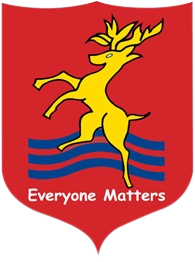Eco-Committee
|
|
|
Our Eco-Committee is very active and is made up of 2 representatives from each Reception to Year 2 class, who meet regularly and share our ideas so that so everyone – including our nursery children can be involved. The Eco-Schools initiative an integral part of our school life and we believe it is important to focus on environmental issues and empower our children so that they can make an impact now, and as they get older.
SPARK Open Day Event at Shankhill School 21st April 2024
Our Eco Committee members had great fun attending the SPARK open day event, at Shankhill School, on Sunday.
We took part in Switch Off Fortnight

Eco Schools Green Flag Award - 2021 / 2022
We have achieved the Eco-Schools Green Flag with Distinction Award. This is an internationally recognised award for excellence in environmental action. The award stated: ‘This award is a wonderful recognition of the many environmental initiatives being made at Inglewood Nursery and Infant School. Congratulations to everyone for the great work you have managed to do. Your application made us feel really positive for the future!’
Some of the fantastic projects that are currently running in the school include:
- creating recycling centres so that every year group has access to materials that they can re-use in each class’s art station
- plastic and paper recycling bins are in every area
- Crisp-packet recycling
- Mindfulness Minutes as part of each class's daily routine
- All classes have access to our bedding boxes and all children are involved in planting, harvesting and using the fruit and vegetables we grow
Some of our other ongoing events which led to the award have included:
- A World Book Day Book Swap.
- Ongoing school uniform and wellie-boots swaps
- Taking part in the Big Battery Hunt
- The whole school worked together to collect bottle tops for the National School Partnership message in a bottle competition. We used bottle tops to create an ocean mural to reflect taking care of our planet.
- Taking part in the Keep Britain Tidy campaign and undertaking litter picks in the local community.
Eco Schools Silver Award - 2019 / 2020
We began our journey towards the silver award by embedding our work on 'Reduce, Reuse and Recycle' into everyday school life. Children began to independently access the area in school to support their Art and DT creativity. We supported this by hosting a 'Recycling Week' in school, where parents and other members of our community sorted materials with the children, which linked with areas of our Science curriculum.
Year 2 children also visited the local refuse centre to find out more about what happens to our waste. Year 1 were visited by a local charity and explored the importance of reducing waste in our world. This led to our committee introducing a community crisp recycling bin.
As committee members changed, it was decided that the new topic would be 'Energy'. The committee members held meetings in their own classrooms where they discussed the importance of turning off taps to save water, and lights and other forms of electricity when not in use. The committee members proudly became 'Light Monitors', creating posters displayed around school reminding others (especially teachers!) to turn off taps and lights.
'Biodiversity' was out next topic. We worked closely with Another Ways charity tree planting event in the Matterdale Valley, where our school governor accompanied the children to help carry out this important (and messy) work. This work was shared with the whole school afterwards and led to deeper understanding of important areas of our Science and Geography topics.
During recent school closures, home learning tasks have been inspired by this topic. Children have been encouraged to engage with the 30 Days in the Wild campaign as well as building bug hotels and planting in, and caring for our own garden spaces.
Eco Schools Bronze Award - 2019
To earn this award we began by electing our first Eco-Committee who carried out an environmental review and decided upon their first action plan. It was discovered that not all areas of school were recycling paper and plastic as well as they could. A recycling area was created in school, meaning materials could be re-used as part of learning. This has reduced the amount of waste created by our school. Further to this, we created a compost area using some of our wasted food.
Book swap, grow your own, recycling and more...
|
|
|
|
|
|
|
|
|
|
|
|
|
|
|
|
















